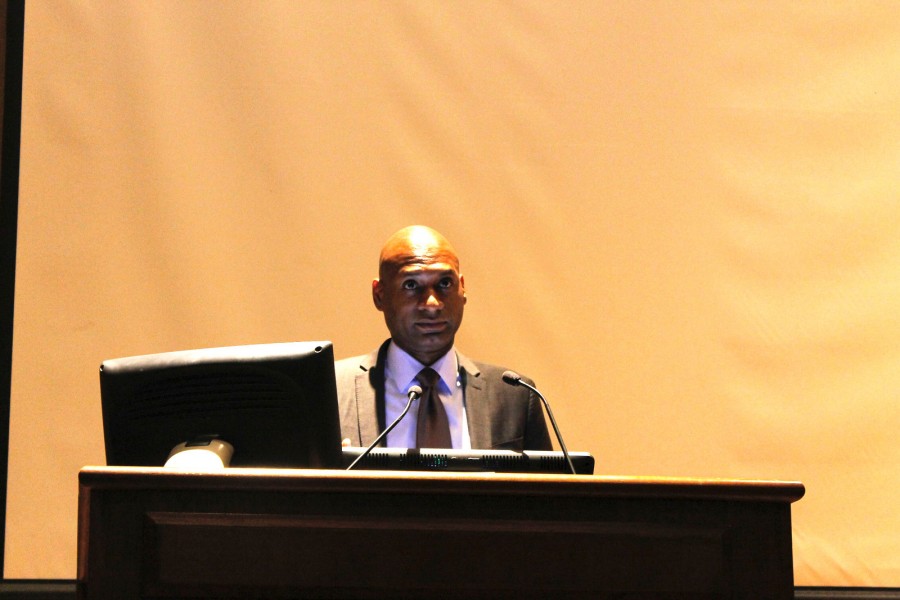Charles Blow comments on Obama’s legacy
February 26, 2015
Charles Blow, acclaimed columnist for The New York Times and previously the art director for National Geographic, addressed the racial and political issues in America particularly as related to the presidency of Barack Obama, detailing exactly what his legacy will be, on Feb. 25. His speech was entitled “The Obamas, Race and Slights.”
This speech, attended by many members of the University community, was focused on the question of what post-Obama America will look like and how, as Blow eloquently put it, “to appraise the current holder of office, Barack Obama.”
This legacy is most famously associated with turning the economy around and we must realize that although it is not presently perfect, we are not in a depression. In this realization, one must address that “part of the recovery’s imperfection is in its imbalance.” Jobs are coming back but this is mostly lower paying work.
The current president will also be remembered for Obamacare, which “stands as one of the greatest legislative achievements of his presidency,” Blow said. Obama’s legacy also consists of the death of Osama bin Laden, drone use, and dealing with ISIS.
Blow explained that Obama will also be remembered for his tolerance and commitment to provide “more visibility and equality for traditionally marginalized populations.” This includes his support of gay rights and gay marriage, which has been deemed the civil rights movement of our time, and appointment of women in the Supreme Court and other positions of power. This promotion of the often marginalized people is characteristic of his two terms in office.
In addition, Blow pointed out that “even if every black person stayed home from the 2008 election, Obama still would have been elected president,” refuting the naive claim that Obama was elected by people of his own race. In places like Mississippi, race identity, and political identity almost always coincide.
“In the South, ideology and racial identity are inseparable,” Blow said.
Following this, he explained that “There is a whole generation for whom growing up, the first president they can remember is African American.”
Although Blow openly voiced his support for Obama and spoke about the impact that he has had on America, he pointed out the negative occurrences in his term. The Congress in place right now is one that Blow describes as “a do nothing Congress.” Also, the police force in place is treading “a fine line between high pressure policing and oppressive policing.”
He also spoke about how social activism in this country has changed and that “there is obviously a general discontent in this country that is pouring into the streets.” His statements about negative points in Obama’s terms only strengthened his speech, and the reality is that any president’s legacy contains points of failure and points of triumph.
One of the most powerful moments of the speech was when Blow asked the question, “If we are all created equal, shouldn’t we all be treated equally?” This is an important question when looking at history, socially-constructed systems of oppression, and election of a future president.
Blow ended his speech by speaking about Obama and saying that “there is no doubt that the time of his presidency will indeed be remembered as transformational.”




















